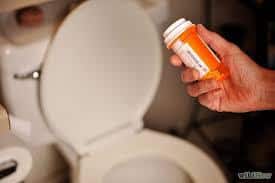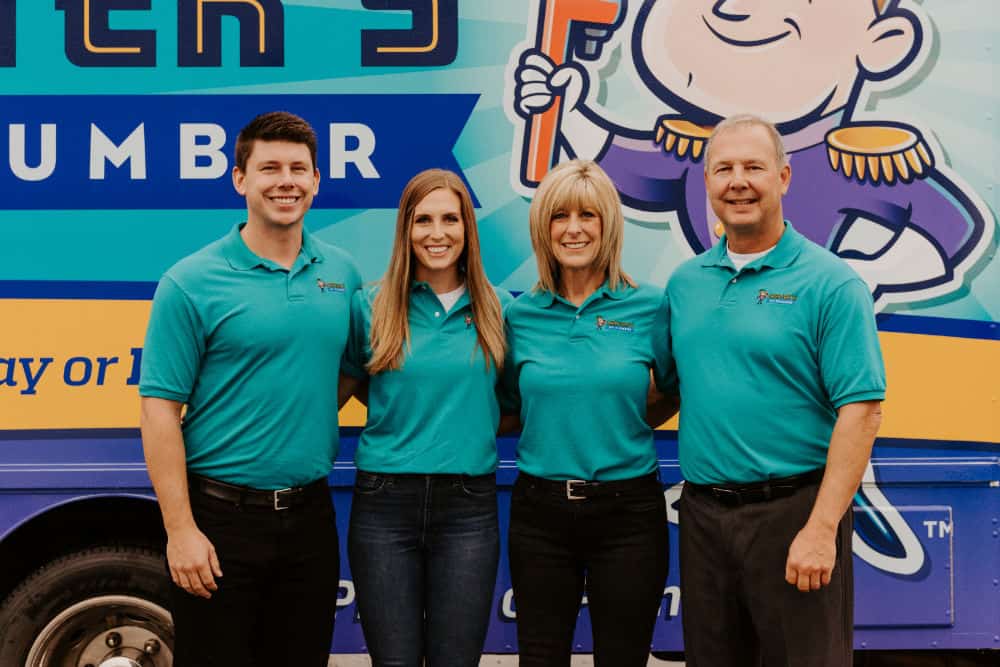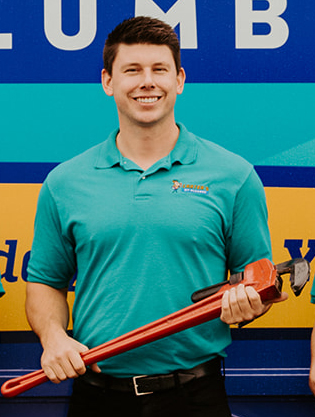Do not flush medication down the toilet or dispose of in the drain.
We have been long told to dispose of excess or expired medication by simply flushing it down the toilet or drain, instead of dumping it in the trashcan. If you flush medication down the toilet it could be harmful to not only yourself but for our environment.
Prescription drugs, along with over-the-counter medications are making their way into our drinking water, polluting lakes and streams and affecting fish and wildlife.
- A Recent study shows that 80 percent of US streams contain small amounts of human medications.
- Sewage systems are not equipped to remove the medication from water that is released into l
akes, rivers or oceans.
- Fish and other aquatic animals have shown adverse effects from various medications in the water supply.
- Small amounts of medication have found their way to our drinking water.
No Flush Medication rule is EPA Standard
According to the EPA, the levels of drugs in our water supply are far below a potentially harmful level at this point in time. However, the EPA isn’t required to track pharmaceutical levels on yearly municipal water reports. While the levels are reporting low, it’s the combination of medications that mix into different cocktails that may be the harmful culprit.
With medicine-laden water ending up in fresh bodies of water, researchers have found an anti-anxiety drug such as oxazepam makes fish hyper, aggressive and antisocial, which interferes with breeding. Traces of antibiotics and an anti-diabetic drug were found to be polluting Lake Michigan just two miles from a water treatment plant, by researchers at the University of Wisconsin.
The EPA recommends crushing and mixing unused drugs with wet cat litter or used coffee grounds, and placing the mixture in a sealed container. The U.S. Drug Enforcement Agency has a National Prescription Take Back Day every April. There is a list of local take-back programs online at www.deadiversion.usdoj.gov and search for “drug disposal/takeback.”
Some local government agencies have medication receptacles or specific days set aside to collect medications that are out of date or are no longer needed, plus, Doctors’ offices or Pharmacies may have medication receptacles. You simply bring your old or unusable medication to the office and dispose of them in the receptacle, but remove the label first, or use a permanent marker to block out your name and information. Ask your physician if they have this service available.
The problem with outhouses way back when, was that people were constantly reminded of what went down the hole, not to mention the smell. Indoor plumbing was a great invention with flushing confirming another axiom: out of sight, out of mind! But flushing doesn’t make the medicine go away; it just put it into somebody else’s backyard.
Information about Carter’s My Plumber:
Carter’s My Plumber is a local, family-owned, 3rd generation plumbing business located in Greenwood, Indiana, providing plumbing service to the Indianapolis, Greenwood, Whiteland, Franklin, Bargersville, Trafalgar, Mooresville, Wannamaker, Beech Grove and Southport areas. Carter’s My Plumber has a special menu of services designed to meet the needs of every homeowner to provide a complete solution to their home’s plumbing system. With over 30 years of plumbing experience, their trained plumbers meet the plumbing need of every residential and light commercial need. Carter’s My Plumber is a Licensed Plumbing Contractor and is a member of the World Plumbing Council, PHCC, BBB, and Greenwood Chamber of Commerce.
Lisa Carter is a Registered Nurse, BSN, BA Public Health, Certified Cancer Coach, Certified Cancer Educator, Business Owner.
 akes, rivers or oceans.
akes, rivers or oceans.


